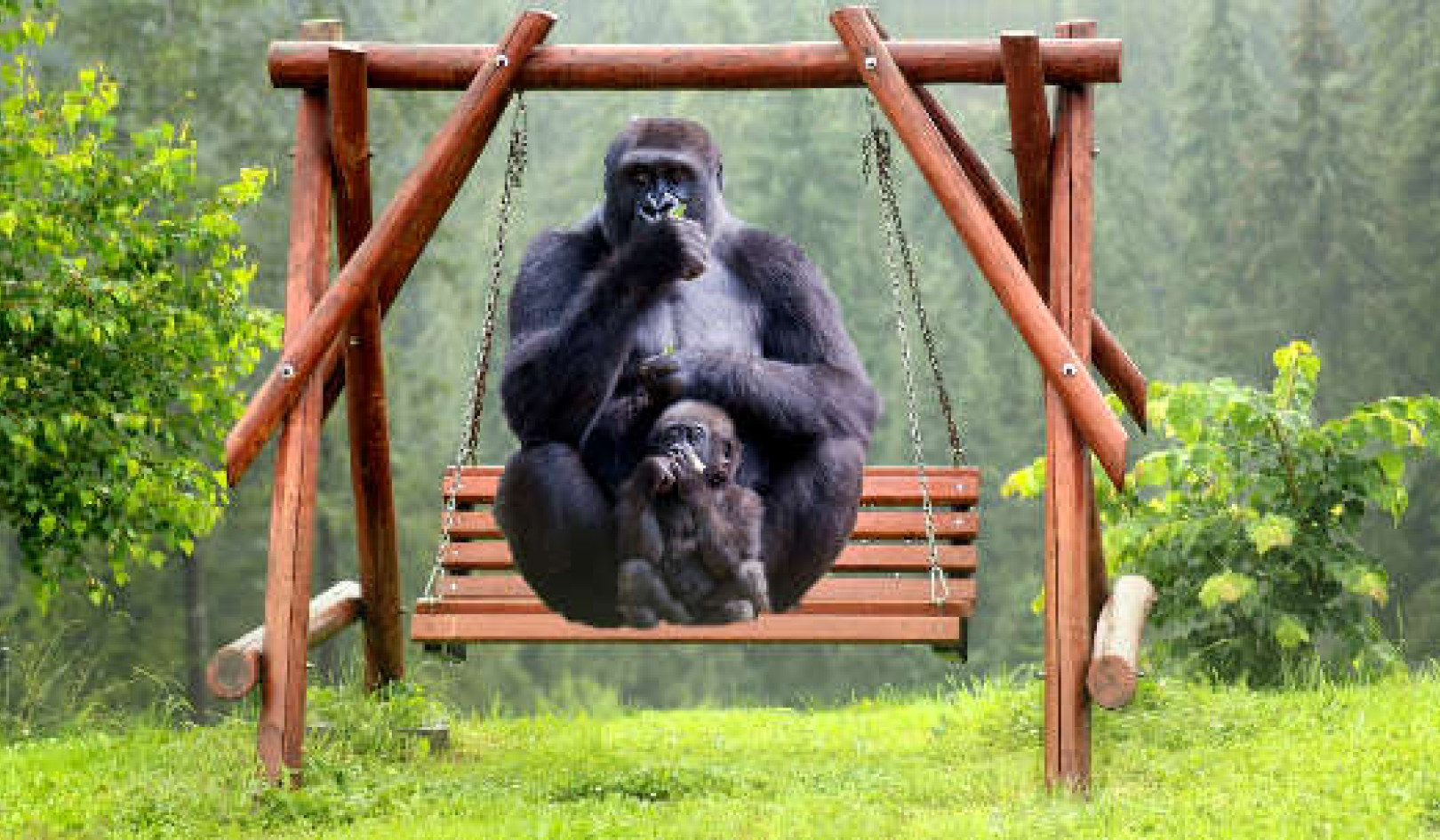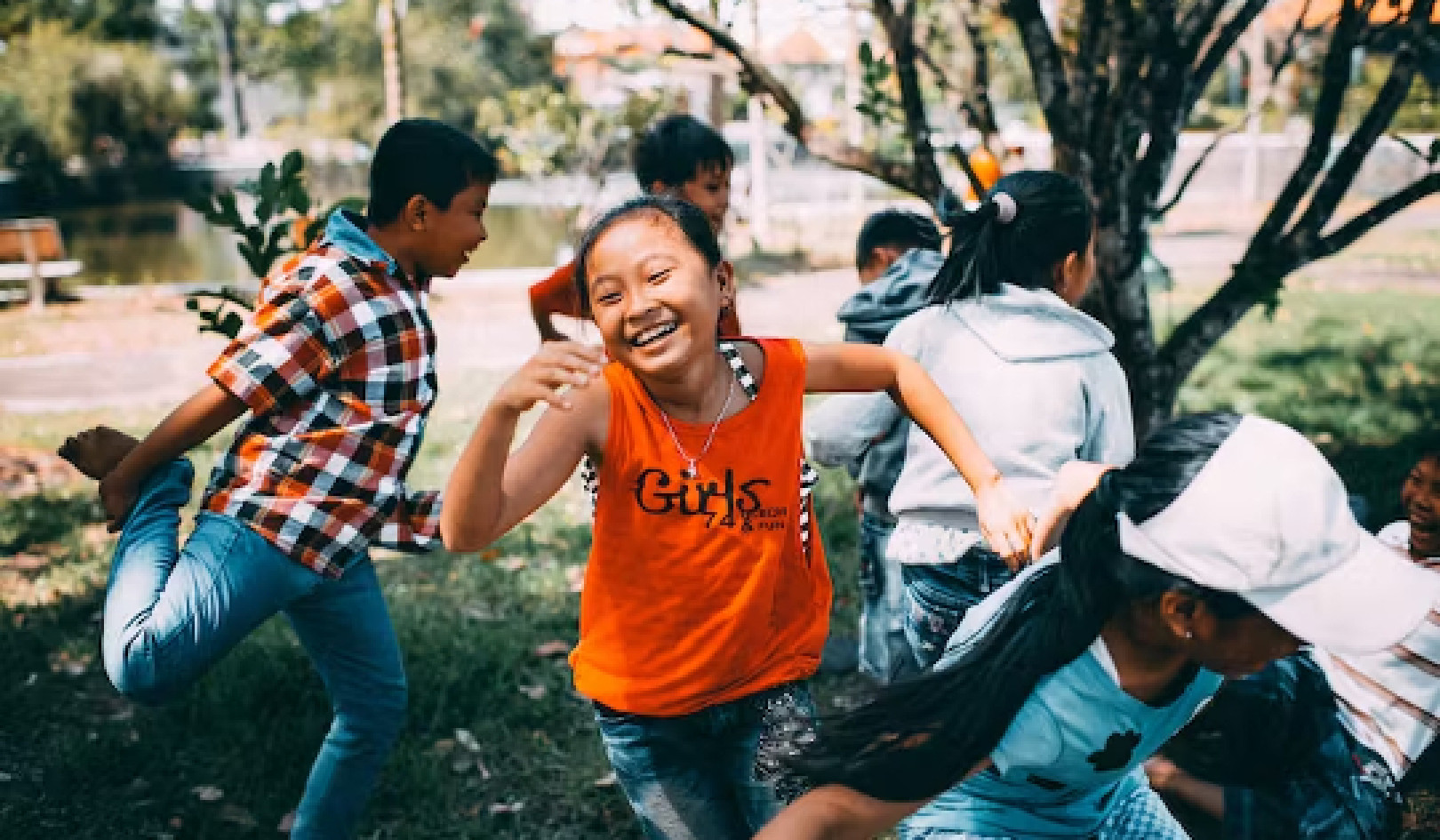
Think about a bright twelve- or fourteen- or sixteen-year-old. One night she hears, or overhears, that her dad has something called a "glioma." What will she do?
There's a chance she'll do nothing. Some children, particularly younger ones, don't want to know the details of a bad thing. But there's quite a good chance that she'll head straight for the computer and Google "glioma."
The first thing she'll learn is that she's called up a dozen or so of approximately 1,650,000 entries. And some of those first entries will be simply terrifying:
“. . . very poor prognosis . . . worst prognosis of any central nervous system malignancy . ."
Then, just as a bonus, this opening Web page features a genuinely horrifying medical photograph of a massive glioma.
The Wonderful, Terrible Internet: Information & Mis-information
The Internet is a world of great danger for children, and of great opportunity. Even the good, reliable information about a disease can overwhelm an unprepared child. But remember one thing:
The Internet is the greatest source of information in human history. It is also the greatest source of MIS-information in human history. Anyone can post anything — anything at all — on the Internet, and it will pop up somewhere on your home screen.
A Family's Determination to Conquer the Disease
I began with the example of glioma because that was the diagnosis that confronted Stephen and his young family. Stephen was the thirty-something father of three girls: Liz, sixteen; Ellie, fifteen; and Jan, twelve.
What I could see from our very first encounter was this family's determination to conquer that tumor. Stephen and his wife, Joan, embodied the attitude: "This thing can be beaten, others have beaten it, and we are going to beat it." I've seldom seen anyone diagnosed with a serious, usually fatal disease sound so positive. They amazed me.
The two younger girls reflected that optimism, but Liz, at that first meeting, appeared quiet, withdrawn.
As the days and weeks passed, Liz became still quieter, pulling away even further from family and friends. Stephen and Joan, still determinedly upbeat about the future, grew seriously concerned about her. They asked me to help them find out what was going on.
Both parents had asked her repeatedly what was wrong, but neither asked the key question: What do you know?
Discovering More Information Than She Could Handle
 So in a private meeting, I asked Liz point-blank: What do you know about your dad's illness? I'll never forget her answer:
So in a private meeting, I asked Liz point-blank: What do you know about your dad's illness? I'll never forget her answer:
"I know a lot more than they think I do!"
Liz confessed that at the first diagnosis, she had gone online, by herself, and Googled "glioma." I asked her what she had learned.
Liz replied, "He's going to die, isn't he?" — and burst into tears.
Having to Face the Fear of Death, On the Web, All Alone . . .
Liz had found what we found at the beginning of this chapter: glioma is a very bad tumor indeed, offering very little hope of survival. What Liz learned was so at odds with her parents', and her sisters', determinedly cheerful outlook that she simply couldn't talk to them or anyone about what she now knew. Liz couldn't even talk to her sisters, who hadn't gone online: She felt she had to protect them from her secret knowledge.
I praised Liz for her courage in telling me what she'd learned, but I also told her it was really important that she let her parents know what she knew. She simply couldn't keep carrying this thing all by herself. Liz really resisted talking to her parents, so I gave her some time. I told her that as long as she would talk to me, I'd carry the secret with her for a while longer. And that compromise worked for her.
Even though she shared her terrible knowledge only with me, Liz began to brighten — her parents told me she seemed happier, though they, of course, had no idea why.
After four or five months, her father's condition began to deteriorate seriously; there was more surgery, a series of seizures. Everyone could now see that he was losing his courageous battle. Finally Liz agreed to tell her parents about her lonely research.
The Truth Is Out There & We Must Face It
Have you ever watched the old X-Files on television? Early in each strange story, the camera tilts up to a gray, overcast sky and the portentous words: "The Truth Is Out There."
At some point in even the most courageous fight against a disease, the truth is out there, and we must face it. That's what happened when Liz finally told her parents what she knew. Stephen, already racked by the effects of the tumor, was just so sad. He cried and told his daughter, "I'm so sorry you carried this all by yourself and didn't tell us, because we would have tried to help you." He went on with ideas like, "You know I'm still fighting, and still think there's a chance I can beat this." And Liz said, "I know that, Dad, and I really want you to. But I also know there's a chance you might not."
The Truth Will Set You Free: Facing It Together as a Family
At this point I told Joan, it's time to tell the other two girls the whole truth. What they were seeing every day simply didn't fit anymore with, "I'm going to lick this thing." It was time to begin getting ready for what was probably going to happen. And all five had a series of family meetings and talked about the truth that was probably out there.
Stephen died several years ago. Liz, who was probably closest to her dad, seemed to grieve the longest. But for all three it was a healthy, cleansing grief, and today they seem undamaged by their family's tragedy. Nobody quit school, nobody got pregnant, nobody got involved with boys her mom hated. Nowadays, when I see them at our holiday parties, they seem healthy. They seem sad sometimes, but they seem to be making it as a family.
Reprinted with permission of the publisher,
St. Martin's Griffin/St. Martin's Press. www.stmartins.com
©1994, 2011 by Kathleen McCue with Ron Bonn
This article was adapted with permission from the book:
How to Help Children Through a Parent's Serious Illness: Supportive, Practical Advice from a Leading Child Life Specialist
-- by Kathleen McCue M.A. C.C.L.S. with Ron Bonn.
 Fully revised and updated, this new edition also explores the major issues and developments from the last decade that affect children today, including the dangers and opportunities of the Internet, a deeper understanding of how hereditary diseases affect children, the impact of the nation's explosive growth in single-parent families, and new insights into how family trauma and a parent’s mental illness may affect children.
Fully revised and updated, this new edition also explores the major issues and developments from the last decade that affect children today, including the dangers and opportunities of the Internet, a deeper understanding of how hereditary diseases affect children, the impact of the nation's explosive growth in single-parent families, and new insights into how family trauma and a parent’s mental illness may affect children.
Click here for more info and/or to order this book on Amazon.
About the Authors
 KATHLEEN MCCUE, M.A., C.C.L.S. pioneered the care and treatment of children stressed by a parent’s grave illness in her renowned clinic and playroom at the Cleveland Clinic Foundation. She then founded and continues to direct the children’s program at The Gathering Place, a support center for families touched by cancer, in Cleveland. This book is based on her lifetime of experience in the field she helped create.
KATHLEEN MCCUE, M.A., C.C.L.S. pioneered the care and treatment of children stressed by a parent’s grave illness in her renowned clinic and playroom at the Cleveland Clinic Foundation. She then founded and continues to direct the children’s program at The Gathering Place, a support center for families touched by cancer, in Cleveland. This book is based on her lifetime of experience in the field she helped create.
 RON BONN, a three-time Emmy Award winning television journalist, now teaches journalism at the University of San Diego. From 1960 to 2000 Ron Bonn served as producer and executive producer for CBS News, NBC News, and others, including five years as senior producer of "The CBS Evening News with Walter Cronkite" and creation of such programs as "Universe," the science magazine for television.
RON BONN, a three-time Emmy Award winning television journalist, now teaches journalism at the University of San Diego. From 1960 to 2000 Ron Bonn served as producer and executive producer for CBS News, NBC News, and others, including five years as senior producer of "The CBS Evening News with Walter Cronkite" and creation of such programs as "Universe," the science magazine for television.

























